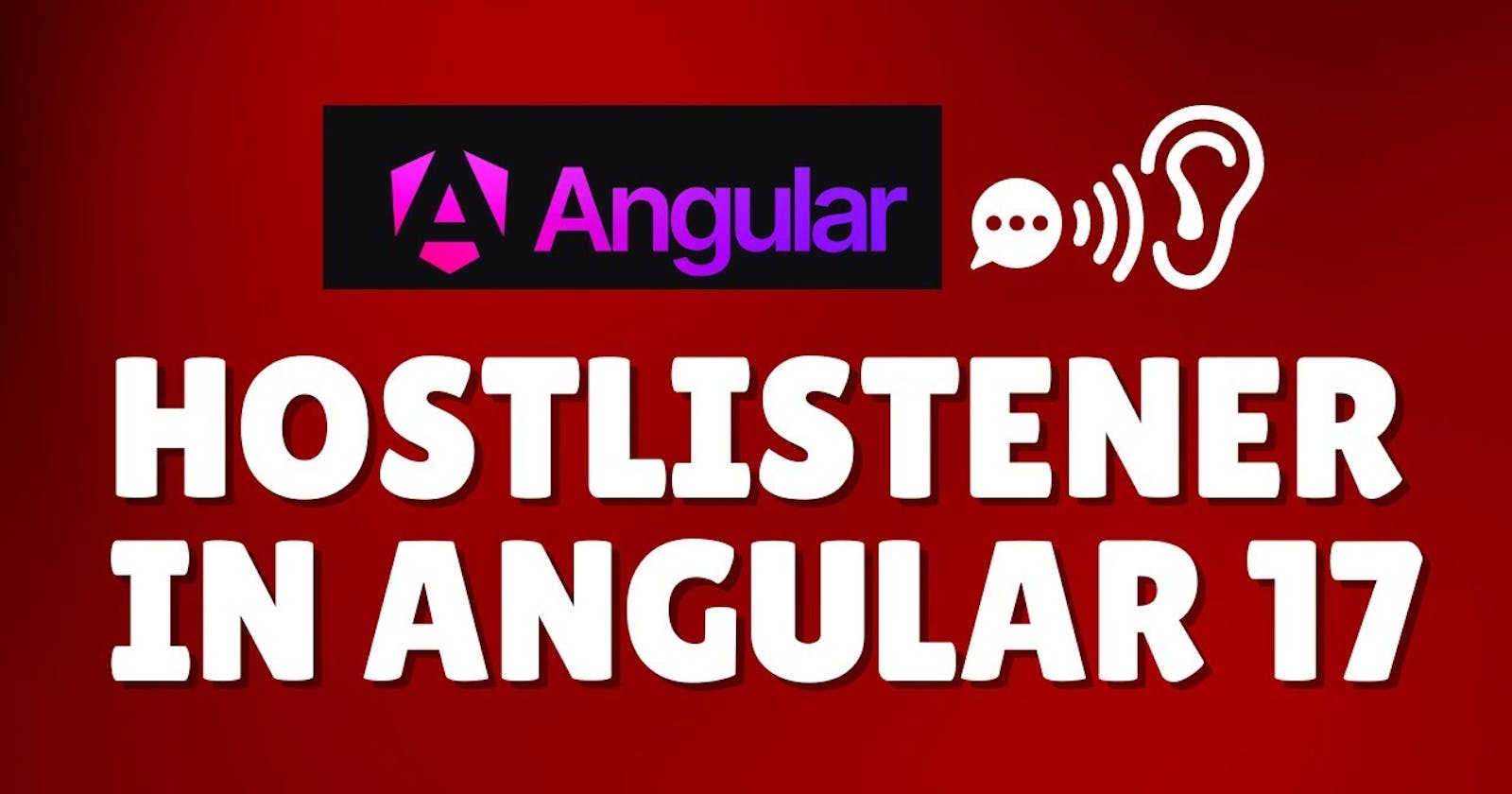Table of contents
From Clicks to Custom Events: Exploring @HostListener in Angular
Introduction
Angular, as a powerful front-end framework, provides developers with a multitude of tools and utilities to create robust and interactive web applications. One such tool is the @HostListener decorator, which allows developers to listen to events on the host element of a directive or component. In this comprehensive guide, we will delve into the intricacies of @HostListener, covering its usage, benefits, and various scenarios with detailed code examples.
Understanding @HostListener
@HostListener is a decorator provided by Angular that enables components and directives to listen to events on their host elements. By attaching this decorator to a method within a component or directive class, developers can specify which DOM event(s) they want to listen for and define the corresponding action(s) to be executed when the event occurs.
How to Use @HostListener
To use @HostListener, follow these steps:
Import the
HostListenerdecorator from@angular/core.Attach the
@HostListenerdecorator to a method within your component or directive class.Specify the event name(s) inside the decorator, enclosed in single quotes.
Define the action(s) to be executed when the event occurs within the method.
Code Example: Basic Usage
import { Component, HostListener } from '@angular/core';
@Component({
selector: 'app-example',
template: '<div></div>',
})
export class ExampleComponent {
@HostListener('click') onClick() {
console.log('Host element clicked!');
}
}
In this example, the onClick method is decorated with @HostListener('click'), indicating that the method should be called whenever a click event is detected on the host element of the ExampleComponent.
Scenarios and Use Cases
- Responding to Keyboard Events
@HostListener('document:keydown', ['$event'])
handleKeyboardEvent(event: KeyboardEvent) {
console.log('Key pressed:', event.key);
}
- Mouse Events
@HostListener('mouseenter') onMouseEnter() {
console.log('Mouse entered host element!');
}
@HostListener('mouseleave') onMouseLeave() {
console.log('Mouse left host element!');
}
- Window Resize Events
@HostListener('window:resize', ['$event'])
onResize(event: Event) {
console.log('Window resized!');
}
- Custom Events
@HostListener('customEvent', ['$event'])
onCustomEvent(event: any) {
console.log('Custom event triggered with data:', event.detail);
}
FAQs
Q: Can @HostListener be used in directives as well as components? A: Yes, @HostListener can be used in both directives and components to listen for events on their host elements.
Q: How can I pass event data to the method decorated with @HostListener? A: You can pass event data by including $event as a parameter in the method signature, as demonstrated in the examples above.
Q: Is it possible to listen for events on elements other than the host element? A: Yes, by prefixing the event name with the appropriate target, such as document for global events or window for window events.
Conclusion
Angular's @HostListener decorator provides developers with a powerful mechanism for handling DOM events within components and directives. By leveraging @HostListener, developers can create more interactive and responsive web applications with ease. From basic click events to complex custom events, @HostListener empowers developers to harness the full potential of event-driven programming in Angular.
By following the guidelines outlined in this guide and experimenting with various scenarios, developers can gain a deeper understanding of @HostListener and unlock new possibilities for enhancing their Angular applications.
So, why wait? Start exploring the world of @HostListener and elevate your Angular development to new heights!
